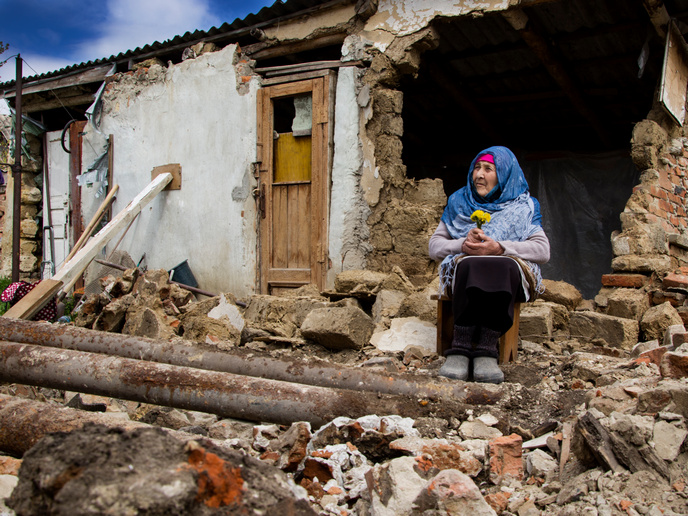A new view on intergroup conflict
Judging by the headlines, it would seem that humans are a spiteful species. “History is full of examples of groups of people fighting each other, an unfortunate pattern that continues today,” says Carsten De Dreu, a professor at the University of Groningen. But is this behaviour the result of humans being programmed to dislike ‘outsiders’, or is it the result of other factors? “Humans also are very capable of caring for others, often willing to help and empathise with those in need, and are typically aversive to harming others,” adds De Dreu. “How can we reconcile this capacity to care with a pervasive tendency to fight?” With the support of the EU-funded ATTACK project, De Dreu intended to find out.
The processes and pressures driving intergroup conflict
According to De Dreu, while behavioural science research has advanced our understanding of intergroup conflict, it has focused exclusively on micro-level processes within and between conflicting groups. What it ignores are the macro-level pressures that could contribute to such conflicts, pressures such as climate change or resource scarcity. “Our goal was to see if these macro-level pressures relate to micro-level processes, with a specific focus on whether the former triggers the latter, ultimately resulting in intergroup conflict,” explains De Dreu.
The role of carrying-capacity stress
To start, the project proposed carrying-capacity stress (CCS), which groups experience when they lack the resources needed to function, as the missing link between macro-level pressures and micro-level processes. “CCS is a function of macro-level pressures and creates intergroup conflict because it impacts micro-level motivation to contri¬bute to a group’s fighting capacity,” adds De Dreu.
From intergroup conflict towards cooperative exchange
Using game theory as a basis, researchers tested its hypothesis via a series of laboratory experiments in Western and non-Western cultures. What they discovered is that CCS is a novel and thus unidentified root cause of conflict between groups of people – but not in the way one would assume. Instead of making people spiteful towards outsiders, CCS makes humans more caring for those within their own group or community. As such, aggressive attacks on outsiders are conducted as a means of bettering the in-group. “Contrary to what we and others before us often assume, individuals are not inherently negative about out-groups,” remarks De Dreu. “Context matters and providing individuals not only with options to aggress outsiders, but also with options to benefit them, could help relax intergroup relations and move groups towards cooperative exchange.”
A new paradigm for thinking about intergroup conflict
Taking an interdisciplinary approach to behavioural science – one that pulls from social and political psychology, experimental economics and cognitive neuroscience – the ATTACK project has reoriented the way we look at intergroup conflict. “By providing a possible new paradigm for thinking about and studying intergroup relations, our work could open the door to novel ways of intervening, preventing and resolving some of the conflicts that continue to cause so much suffering,” concludes De Dreu. The project, which received support from the European Research Council, is currently working to expand the implications of its research, looking at, for example, how CCS can influence intergroup cooperation.
Keywords
ATTACK, intergroup conflict, behavioural science, conflict, climate change, resource scarcity, carrying-capacity stress



